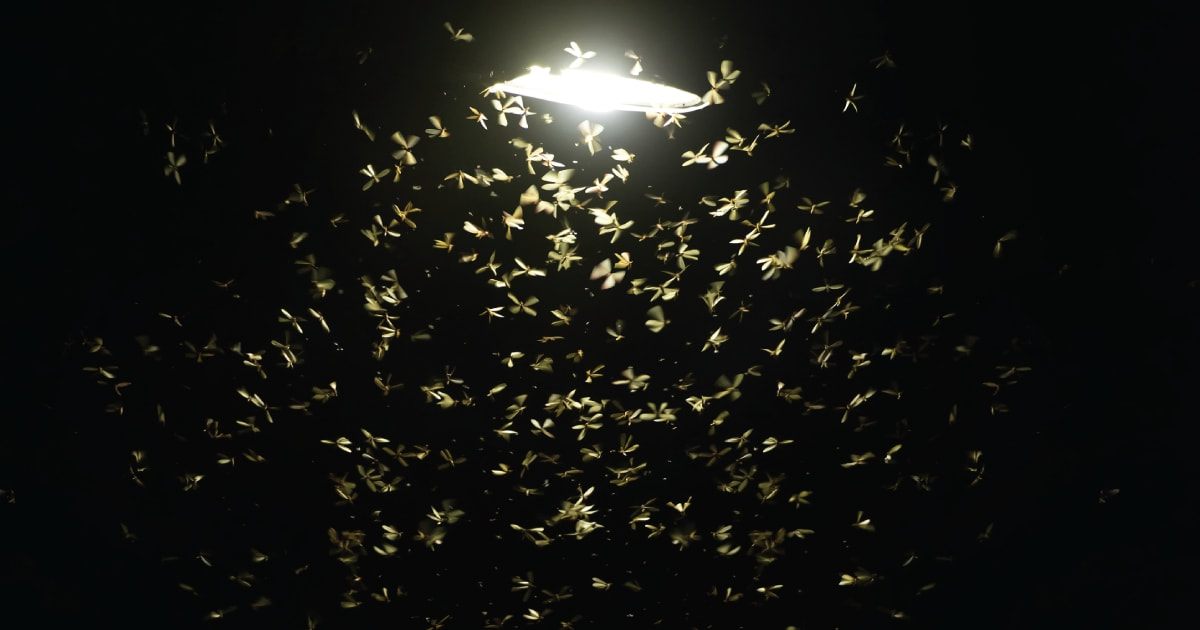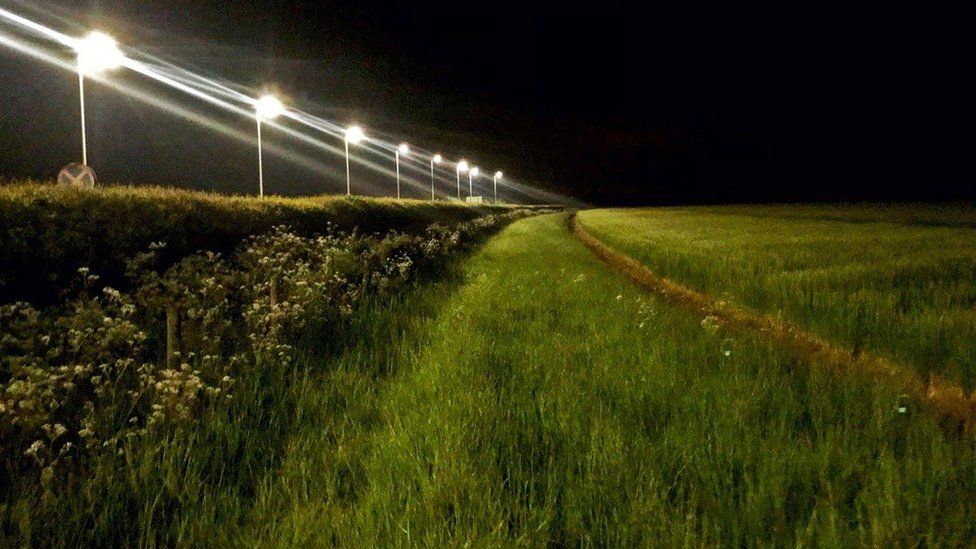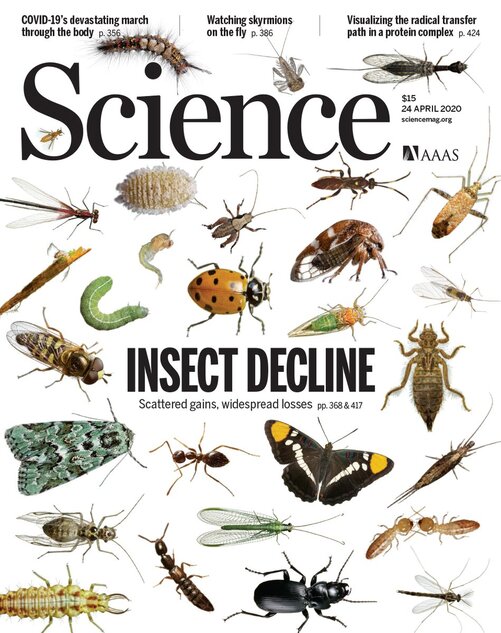|
Helen Briggs BBC Science and environment correspondent August 29, 2021 Scientists say light pollution may be contributing to "worrying" declines in insects seen in recent decades. In a UK study, artificial street lights were found to disrupt the behaviour of nocturnal moths, reducing caterpillars numbers by half. Modern LED streetlights appeared to have the biggest impact. There is growing evidence that insect populations are shrinking due to the likes of climate change, habitat loss and pesticides. Factors are complex and varied, including the steady loss of forests, heathlands, meadows and marshes, overuse of pesticides, climate change and pollution of rivers and lakes. The use of artificial lights at night-time has been proposed as another driver of insect decline, although the scale remains unclear. The researchers say their study, published in Science Advances, is the strongest evidence yet that light pollution can have detrimental impacts on local insect populations, with consequences for the birds and other wildlife that rely on caterpillars for food. "In a local setting we can now be quite confident that light pollution is important, but what's less clear is if we're looking at a whole landscape," said lead researcher Douglas Boyes of the UK Centre for Ecology & Hydrology. "If insects are in trouble - as we believe they are, and have evidence to support that - perhaps we should be doing all we can to reduce these negative influences." The researchers think street lights may deter nocturnal moths from laying their eggs or put the insects at risk of being spotted and consumed by predators such as bats. In turn, caterpillars that are born under streetlights, particularly LEDs, alter their feeding habits. But there are practical solutions that don't compromise public safety, they say, including dimming streetlights in the early hours, fitting motion sensors or using colour filters to cut out the most harmful wavelengths. In the study, experts from the charity, Butterfly Conservation, Newcastle University and the UK Centre for Ecology & Hydrology surveyed caterpillars on stretches of grassland and hedgerows at the sides of roads in southern England. Each of 26 sites with streetlights in Oxfordshire, Berkshire and Buckinghamshire was compared with a similar stretch of unlit road nearby. Surveys showed a reduction of caterpillars by about half in lit areas (47% reduction in hedgerows; 33% in grass margins). In a second experiment, lighting rigs were set up in fields. They found a reduction in caterpillars under LED lights, suggesting an effect on feeding behaviour. Scientists are increasingly concerned about the decline of some populations of insects. One scientific review of insect numbers in 2019 pointed to 40% of species undergoing "dramatic rates of decline" around the world. The study said bees, ants and beetles were disappearing eight times faster than mammals, birds or reptiles, while other species, such as houseflies and cockroaches, were likely to boom. The loss of insects has far-reaching consequences for entire ecosystems. Insects provide a food source for many birds, amphibians, bats and reptiles, while plants rely on insects for pollination. Follow Helen on Twitter. Hear more about how artificial street lighting is impacting insects on the BBC Inside Science podcast on BBC Sounds
Comments are closed.
|
Archives
July 2024
|
|
Donations to Dark Sky Defenders do not go to DarkSky International. Please contribute directly to DSI for donations and memberships.
|
|




 RSS Feed
RSS Feed
